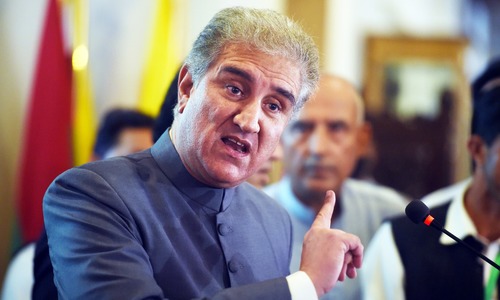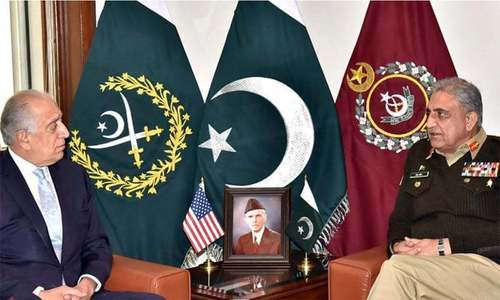DOHA: Washington and the Taliban are set to sign a deal in Doha on Saturday to secure America’s exit from its longest war through gradually withdrawing troops and starting talks between Kabul and the militants.
The agreement will likely be heralded as marking the start of a hopeful new era for Afghanistan, which has seen 40 years of conflict.
But what happens next is anyone’s guess, with questions swirling around the Taliban’s intentions and Afghanistan once more in the grip of a political crisis threatening to plunge the impoverished country further into the abyss.
The accord comes after more than a year of talks between the Taliban and the US that faltered repeatedly as violence raged.
While the deal’s contents have not been disclosed, it is expected to see the Pentagon begin pulling troops from Afghanistan, where between 12,000-13,000 are currently based.
The US has said an initial drawdown over the coming months would be to about 8,600 -- similar to the troop level President Donald Trump inherited after his 2016 election win.
Further reductions depend on how well the Taliban honour pledges to start talks with the government of President Ashraf Ghani — who until now they have dismissed as a US-backed puppet — and seek a comprehensive “intra-Afghan” ceasefire and peace deal.
The insurgents are also supposed to guarantee Afghanistan is never again used by jihadist groups such as Al-Qaeda and the militant Islamic State to plot foreign attacks — a concept even some of Trump’s closest advisors remain deeply sceptical of.
Saturday’s signing comes after a week-long, partial truce that has mostly held across Afghanistan aimed at building confidence between the warring parties and showing the Taliban can control their forces.
While isolated attacks have continued in rural areas, US Secretary of State Mike Pompeo said Tuesday that the truce period was “working”.
“We’re on the cusp of an enormous, enormous political opportunity,” he said.
More than 100,000 Afghan civilians have been killed or injured over the past decade.
Published in Dawn, February 28th, 2020














































